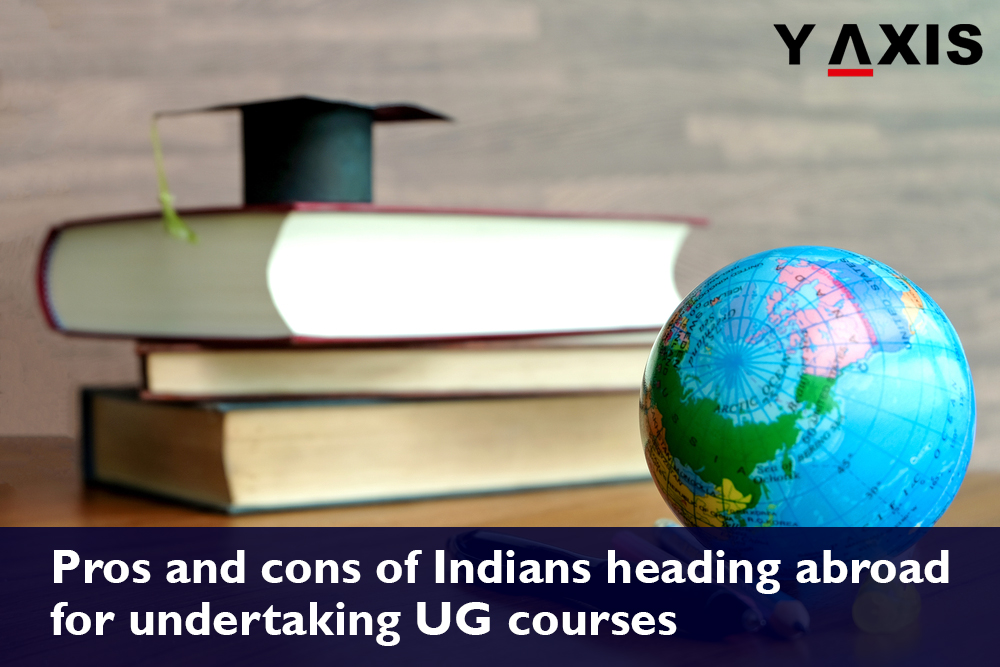Posted on August 16 2017
Pros and cons of Indians heading abroad for undertaking UG courses
By , Editor
Updated April 03 2023
Most of the students from India nurture dreams of pursuing undergraduate courses in foreign countries since their childhood. The number of such people realizing this dream has been increasing each year.
The 2016 Open Doors Report on International Educational Exchange has, in fact, revealed that of the more than one million international students enrolled in the US colleges for the year of 2015-16, one out of six of them is from India.
More than 75 percent of Indian students are pursuing courses in the STEM (science, technology, engineering, and mathematics) fields, the report adds.
In addition, 85 percent of students from India looking to Study Overseas prefer the US, the UK, Canada, Australia and New Zealand, according to the Indian Students Mobility report, 2016.
T Muralidharan, the founder and chairman of TMI Group, in an article in the Indian Express, explains the pros and cons of Studying Abroad. According to him, most students who opt to pursue the undergraduate courses in universities abroad do so because of the highly competitive environment in India. In addition, the supply of seats in undergraduate courses is very less when compared to the students applying for it. Students, who do not want to take the entrance tests for fear of failing in them, prefer going abroad to study.
The second reason is that many of them who intend to go abroad do so with the goal of settling there. But as most of the aforementioned foreign countries are trying to limit immigration, students need to be aware of the countries’ immigration policies where they want to study and settle.
One drawback of the Indian education system is that it is highly focused on theoretical aspects. On the other hand, the practical approach is more pronounced in courses being offered for undergraduate Students Abroad. This encourages Indian students to prefer studying in a developed nation.
One of the most important aspects of studying in foreign colleges is that people end up with a very well-rounded personality. They learn about new cultures, mix with people from disparate backgrounds and also hone their communications’ skills, among other benefits that overseas education affords.
On the flip side, the author states that not all students from foreign universities are treated on par with one another by Indian employers. They give credibility only to people who pass out of renowned universities abroad. With the immigration policies of the most developed countries becoming tougher, students who are graduates of lower ranked universities may find it difficult to land jobs in India as well as there.
The tuition fee for undergraduate courses is on the expensive side, with wards of rich parents or others who mortgage their assets being able to go there. Parents of the latter group would, hereafter, be not too eager to send their children abroad because they are no longer assured that they may bag attractive jobs, eventually.
If you are looking to Study Abroad, get in touch with Y-Axis, a company of high repute for immigration services, to apply for a student visa.
Tags:
Study abroad
Share
Options for you by Y-Axis
Get it on your mobile
Get News alerts
Contact Y-Axis


